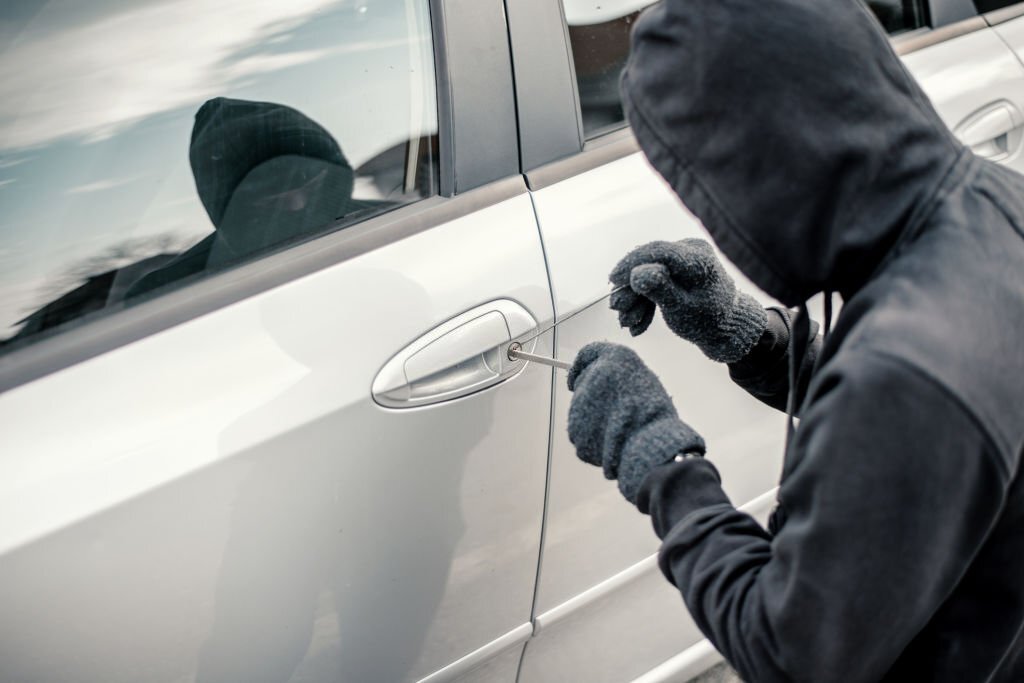Auto burglary is a serious crime in California. For that reason, it’s critical to talk to an experienced lawyer immediately after an arrest. A criminal conviction can result in harsh penalties, including jail time and costly court fines. But remember: You are innocent until proven guilty. It’s natural to feel scared about what might happen next — but the right lawyer can ease your mind and build a strong defense on your behalf.
If you’ve been charged with car theft, turn to Lamano Law Office. We understand how stressed and worried you feel. You do not have to navigate the legal system alone. Our proven defense attorneys handle a wide range of criminal cases and have a 98 percent success rate of keeping our clients out of jail. With over 30 years of combined legal experience, our legal team has the knowledge and skills to defend your rights and fight for the best possible outcome. Contact us today to speak to an auto burglary lawyer in Oakland.
Types of Auto Burglary in California
Under California Penal Code § 459, a person commits auto burglary when they enter a locked vehicle with the intent to steal it, take any property inside the car, or commit another felony inside it. Auto burglary, also known as car burglary or vehicle burglary, is a second-degree burglary that can be tried as either a felony or misdemeanor.
To convict someone of auto burglary in California, a prosecutor must prove:
- The accused entered a locked vehicle.
- The accused intended to commit a theft or felony inside the car.
A vehicle is considered locked if a person must use force or alter the car’s physical condition to gain access. A typical example of auto burglary is breaking into a car to steal its stereo.
A person can be found guilty of auto burglary even if they do not commit a theft or felony. Even intending to commit a crime is proof enough to win a conviction.
Under California Penal Code § 487, grand theft auto occurs when a person unlawfully takes an automobile belonging to another person. A person may be convicted of grand theft auto in California if a prosecutor can prove the following:
- The individual took or drove a vehicle.
- The vehicle did not belong to them.
- They took the vehicle with the intent to deprive the owner of it.
Common charges associated with auto burglary include:
- Petty theft – Property theft of no more than $950 in value
- Grand theft – Property theft valued at over $950
- Attempted burglary – Intending to commit burglary and taking some action to commit the offense
- Tampering with a vehicle – Injuring any vehicle or its contents, or breaking or removing any part of the vehicle without the owner’s consent
- Sentencing for Auto Burglary in California
In California, auto burglary is a second-degree burglary, known as a wobbler. This means the prosecutor can charge a defendant with a misdemeanor or felony crime, depending on the facts of the case.
The penalties for a conviction of misdemeanor auto burglary include up to one year in county jail, fines, restitution, and probation. However, a conviction of felony auto burglary can result in 16 months to three years in county jail or state prison, fines, restitution, and probation.
Common Defenses Against an Auto Burglary Charge
If you are facing auto burglary charges in California, a criminal defense attorney may use one of several defense strategies to get your charges reduced or dropped. The most common legal defenses against auto burglary include:
- Lack of intent – To convict a defendant of auto burglary, a prosecutor must prove that they intended to commit a felony or theft. A criminal defense attorney could argue that the defendant did not intend to commit the crime.
- The car was unlocked, or there was no forced entry – One element of auto burglary is entering a locked vehicle. A prosecutor must prove that the car was locked and forced entry occurred. A criminal defense attorney can use evidence to cast doubt on this claim.
- Insufficient evidence – A prosecutor must prove a defendant’s guilt beyond a reasonable doubt. A lack of evidence or weaknesses in the case might not warrant a conviction.
- Owner’s consent – If the vehicle’s owner gave the defendant permission to use it, the defendant’s actions might not have amounted to a crime. But remember that even if the owner consented once, borrowing the car a second time without permission could be considered auto burglary.
- False identification – Sometimes, witnesses or the victim incorrectly identify the defendant. A solid alibi can show the defendant was somewhere else at the time of the crime.
- Duress – If a person commits auto burglary under duress, they might not be guilty of a crime. There must be proof that someone else used threats or force to get the defendant to commit auto burglary.
- The vehicle belonged to the defendant – If the car belongs to the defendant or the defendant thought it belonged to them, they either could not have committed burglary, or their actions may have been an honest mistake.
Lamano Law Office has a proven method of poking holes in law enforcement’s investigations. We use a 150-point inspection of every case to create a successful defense for our clients. Don’t leave the fate of your future in an inexperienced lawyer’s hands. Trust a team that has been successfully defending Californians for decades.
Contact an Oakland Car Burglary Lawyer Today
At Lamano Law Office, we understand how a criminal charge can turn your life upside down. Our lawyers know that your reputation, freedom, and livelihood are at stake, so we are committed to working tirelessly to defend your rights. Contact our office to speak to our Oakland car burglary lawyers today.

